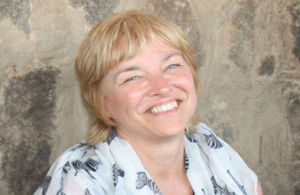Better Healthcare for Low-Income Kenyans
Better Healthcare for Low Income Kenyans: Innovative Private Sector Approaches

Head of DFID-Kenya, Lisa Phillips
The Business Call to Action and Private Sector Innovation Programme for Health (PSP4H) on December, 4 co- hosted an event focused on innovative private sector approaches to delivering better healthcare to low income Kenyans. The event brought together chief executives from the private sector, senior representatives from governments, bilateral donors, civil society and the United Nations.
The half day event offered an opportunity to showcase innovative work, enhance knowledge among practitioners working on business-based approaches to health and emerging partnerships between businesses and public-sector stakeholders
Speaking at the event, the Head of UKaid in Kenya Ms Lisa Phillips said,
“The UK Government recognises that the private sector is an engine of growth in developing countries. Successful businesses drive growth, create jobs and pay taxes that finance services and investment – all critical to achieving economic development that is accessible to the poor and resilient to future shocks. We are one of the sponsors of the global Business Call to Action which challenges companies to develop innovative business models that achieve commercial success and development outcomes. A critical component of our assistance in Kenya focusses on trying to help improve the lives of low income Kenyans through improving health and catalysing private sector growth.”
DFID works closely with the Ministry of Health and supports a range of partners including Cardno who lead the UKaid funded ‘Private Sector Innovation Programme for Health’ in Kenya, known as PSP4H. Through UKaid support PSP4H is assisting the Kenya Pharmaceutical Association (KPA) to improve access to quality essential medicines among low income Kenyans through development of a branded retail pharmacy network called Pharmnet
Further information:
-
PSP4H is a two year action research project funded by UKaid and implemented by Cardno Emerging Markets and its partners. The project aims to explore a new area for DFID Kenya, namely the markets in which poor people pay for-profit providers and shop-keepers for healthcare. The overall objective of the project is to learn lessons on how a market systems approach benefits pro-poor health interventions, to inform future programme design.
-
Through an on-going programme, the UK has committed £106 million (2010-2015) to increase equitable access to affordable quality basic health services. Expected results from this programme include: helping more than 700,000 women access modern family planning services; distribution of 5.2 million bed-nets to pregnant women and children.